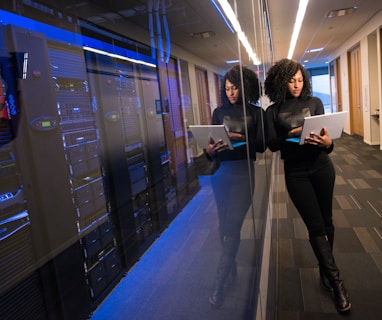The Post-Pandemic Future of Work
What to Expect
9/11/20232 min read


The Post-Pandemic Future of Work: What to Expect
The COVID-19 pandemic has transformed the world in unprecedented ways, and one of the most significant areas of change has been the way we work. As we move forward into a post-pandemic world, it's essential to understand how the landscape of work is shifting. In this blog post, we'll explore the key trends and changes we can expect in the post-pandemic future of work.
Remote Work Evolution
The New Normal: Remote work is here to stay. Many businesses have realized the benefits of remote work, such as reduced overhead costs and access to a wider talent pool. While some employees will return to the office, a significant portion will continue to work remotely, ushering in a hybrid work model.
Emphasis on Flexibility: Flexibility will be a cornerstone of the future of work. Employees will have more say in where and when they work, fostering a better work-life balance. Companies will need to adapt by providing the technology and support necessary for remote and hybrid work arrangements.
Digital Transformation and Automation
Accelerated Digital Transformation: The pandemic accelerated digital transformation initiatives across industries. Companies will continue to invest in technology to streamline operations, enhance customer experiences, and enable remote collaboration.
Automation and AI: Expect to see increased adoption of automation and artificial intelligence in various job functions. While automation can improve efficiency, it may also raise questions about job displacement. The future workforce will need to be adaptable and possess digital skills.
Redefined Office Spaces
Reimagining the Office: Office spaces will undergo a transformation. Offices will be designed to accommodate hybrid work, emphasizing collaboration and innovation. The focus will shift from individual workstations to collaborative areas that foster creativity.
Health and Safety Measures: Even in a post-pandemic world, health and safety will remain a priority. Office layouts will incorporate social distancing measures, improved ventilation, and touchless technologies.
Employee Well-being and Mental Health
Prioritizing Well-being: The pandemic shed light on the importance of employee well-being. Companies will continue to prioritize mental health and wellness initiatives to support their workforce.
Flexible Work Hours: Flexible work hours and time-off policies will become more common to allow employees to manage their well-being effectively. Employers will offer mental health resources and encourage open conversations about mental health.
Skills and Learning
Continuous Learning: With rapidly evolving technology, continuous learning will be crucial. Employees and businesses alike will invest in upskilling and reskilling to stay competitive.
Hybrid Learning Models: Expect the rise of hybrid learning models that combine online courses with in-person workshops and mentoring programs. These models will cater to various learning styles and preferences.
Diversity and Inclusion
Commitment to Inclusion: The post-pandemic workplace will see a stronger commitment to diversity and inclusion. Companies will take proactive steps to create equitable environments and promote diversity at all levels.
Remote Work and Inclusion: Remote work can promote inclusion by providing opportunities for talent from diverse geographical locations. However, companies will need to address potential challenges related to remote employees feeling excluded.
Sustainability and Corporate Social Responsibility
Green Initiatives: Sustainability and corporate social responsibility (CSR) will remain at the forefront. Companies will adopt eco-friendly practices, reduce carbon footprints, and align with sustainability goals.
Social Impact: Expect a greater focus on social impact initiatives, with companies addressing societal issues and contributing positively to the communities they operate in.
Conclusion
The post-pandemic future of work is poised to be a dynamic and transformative era. While we can anticipate many positive changes, challenges will also arise. Adapting to this evolving landscape will require flexibility, empathy, and a commitment to innovation. By staying informed and prepared, both individuals and organizations can thrive in the exciting world of work that lies ahead.

